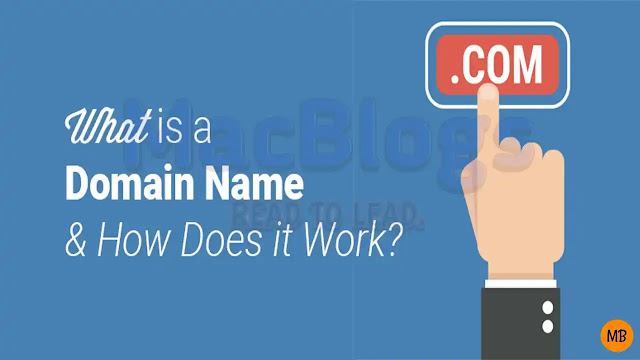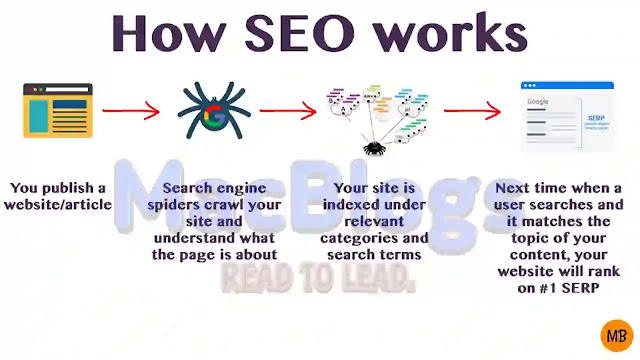In this article, we will learn about how to start blogging in 2021. It will cover all the major topics that you should take care of. You will learn about hosting, domain, and blogger templates.
Above all, you will learn something new about SEO. It is a crucial topic to learn before starting a blog. SEO will drive organic traffic from search engines like Google or Bing. So, let's get started.
How to start blogging in 2021?
You can start a blog by visiting the website blogger.com.
- Create an account or Sign Up using your email.
- Create a blog and name it.
- Select a niche to write the posts.
- Start writing your thoughts and post them.
- Start earning from Google AdSense or any other ad service.
Before starting a blog, you should know about the following things. It will get much easier after knowing things. However, this article will serve you as a theory part. That is to say when you will start a practical blog you might get some problems. But, most of them will be solved if you already know the following things.
What is Hosting?
Hosting is the server of your website. The blog will require a hosting server to hold the data like images and posts uploaded by you. The servers will manage all data in their system.
Servers are big rooms with high-tech systems to store your data. You do not have to host that much data on your personal computer. Also, it is not possible.
Furthermore, hosting will maintain the visitors on your website. The high visitor traffic may lead to website crashes. But if you have hosted the website on the server, it can manage a large number of visitors simultaneously.
What does Hosting provide?
Different companies provide different types of hosting. Their benefits are also different. Moreover, you can purchase different hosting plans to host your website. For instance, there are three types of web hosting.
1. Single Web Hosting:
It is best for an individual website. For example, if you want to run a blogging website, you can choose this web hosting. It provides:
- Support to 1 website only. (Best for blogs)
- Up to 30 GB storage (Depends on hosting provider)
- 1 Email account
- Manage 10,000 visitors per month
- SSL Certificate
- Bandwidth: 100 GB
Furthermore, many other benefits are provided by different hosting providers. These are the main and ground benefits that are provided by all the hosting provider companies. It is best to choose as a beginner.
2. Premium Web Hosting:
If you are an advanced blogger and have some experience, then opt-in for this type of web hosting. It will provide:
- Support to 100 websites
- Up to 100 GB storage (Depends on hosting provider)
- Free email account
- Free SSL Certificate
- Free Domain
- Bandwidth: Unlimited
- Manage 25,000 visitors per month
Premium Web Hosting also provides some additional benefits. But it again depends on the company. However, these benefits are provided by all the hosting providers. It is best for personal websites or small businesses.
3. Business Web Hosting:
This web hosting is only for those who run some businesses. If you want to start a blog, you don't need to worry about what is it. However, you must know about Business Web Hosting. It provides:
- Support to 100 websites
- Up to 200 GB storage (Depends on hosting provider)
- Free email
- Free SSL Certificate
- Free Domain
- Bandwidth: Unlimited
- Manage 1,00,000 visitors per month
- Daily Backup
- Free CDN (Increase loading speed)
These are the main benefits provided by all the hosting companies. Other miscellaneous benefits are also provided as per the company's policy.
Miscellaneous advantages include WordPress support and acceleration, GIT access, SSH access, databases, and 30 days money-back guarantees. The prices for different hosting service differs. It also differs from company to company.
Price:
Single Web Hosting < Premium Web Hosting < Business Web Hosting
In brief, hosting supports your website and stores your data. However, initially, you do not have to purchase the hosting if you are using blogger.com to start a blog. You need to purchase it later when the website starts to get high traffic. On the other hand, hosting is required to start a blog website on WordPress.
Where to buy Hosting?
There are plenty of websites and companies that provide hosting services. However, not all of them are trustworthy and powerful hosting services. You can buy hosting from the following reputed and well-known websites.
- GoDaddy
- Hostinger
- Hostgator
- Bluehost
I personally recommend purchasing the hosting from GoDaddy or Hostinger. Also, you can consider other options as well to your convenience.
What is Domain?
A domain name is the name or address of your website. For example, amacblog.com is the domain for this website. You can see that in the address bar of your browser. It helps in finding your website on the internet. Also, it tells the search engines about your website.
Types of Domains Extensions:
Generic Domain Extensions:
This is the common type of domain extension. anyone can buy this type of extension. It includes .com, .org and .net domain extensions.
Additionally, there are many other types of generic domain extensions present. For example, .blog and .beer.
These are all Top-Level Domains or TLDs.
Sponsored Domain Extension:
This type is only for those websites which are categorized as an organization or government. It includes .gov and .edu domain extensions.
You will have to qualify for some criteria to get this type of Top-level domain.
Generic-Restricted Domain Extension:
It is somehow similar to a generic domain extension. However, it is for more specific websites. For instance, .name and .pro are included in generic-restricted domain extensions.
Country Code Domain Extension:
This is used to specify a certain country. All countries have their own unique domain extension. For instance, .in for India, .co for Colombia and .uk for United Kingdom.
It helps to rank websites in that specific countries.
Furthermore, the indexing and ranking of search engines depend on the domain extensions used by a website. Let's learn more about the examples of domain extensions.
Domain Extensions:
There are many domain extensions to use as per the category of the website. Let's see which domain extension is suitable for what type of website.
.com: Any type of website can use this domain extension. This extension ranks the website in all the countries of the world. If you want to rank your website throughout the world, use this domain extension. Your website will rank internationally.
Additionally, .com stands for commercial. It is a Top-Level Domain (TLD).
.in: This extension is particular for India only. If your website is giving the information to the Indian audience, better go with the .in domain extension. It will target the Indian audience only. For example, you start a website on UPSC exam tricks. Use .in domain extension, because no audience from other countries will search for UPSC. So, better to target only the Indian audience.
.online: Digital marketing websites use this extension. If you are opening an online store, it can be a good choice. It is cheaper than the .com domain.
.gov: The government website use the .gov domain extension. Personal websites cannot use this domain extension. Before purchasing the .gov domain extension, you need to qualify for some predefined criteria.
.org: Different types of organizations use the .org domain extension for their websites. For example, NGOs.
There are many other examples of domain extensions to use for your website. However, you won't need them if you want to start blogging.
In brief, I recommend purchasing the .com domain for your personal blog website. Also, you can buy a .in domain at your convenience.
What is SEO?
It is the most important thing that you must know before starting a blog. Blogging requires enough knowledge of SEO. It helps in better Google ranking and getting organic traffic.
SEO stands for Search Engine Optimization. That is to say, bloggers have to optimize their content and website for search engines like Google. Furthermore, to understand this vast topic, first understand how a search engine works!!!
For instance, let's take the example of GoogleBot, the crawler of Google. It visits your blogger website periodically. During the visit, it scans and runs some checks on your website. So, you should do some settings to help that crawler to scan your website.
Furthermore, the crawler will scan your different pages and posts. It will look for specific keywords. Then it will index and rank your article in Google search. It will get you organic traffic from Google or other respective search engines like Microsoft Bing.
Additionally, it will check for other factors too like page loading speed besides keywords. Many factors will be considered by the crawler (GoogleBot) to rank your post in Google Search.
So, that whenever a query or search will be made on Google, it will show your website to the visitor. A visitor will visit your website and your traffic will grow.
However, it is not that easy as it seems. You have to do some hard work to achieve that. Also, it is not impossible if you do it right. Let's understand how to do SEO and how it may affect website ranking and traffic. I will explain all the concepts in short. The basic knowledge of SEO will be enough for you to start blogging. You will learn more about it while actually doing it.
Types of SEO:
On-Page SEO:
The first type of SEO is On-page SEO. It is meant for visitors coming to your blog. It includes your content, loading speed, quality of content, keywords, etc. Let's understand all this one by one.
Content and Quality of Content: Your content should be long enough. I recommend writing an article of at least 800 words. Small content does not get a chance to rank if there is another alternative long content posted by some website.
Moreover, the quality should be maintained. That is to say, your article or post should be informative and easy to understand. Avoid using passive sentences. Use transition words to maintain the quality. You can do this by using Yoast SEO plugin.
Also, your content should be unique. To clarify, do not copy someone else's work. The plagiarized work is not a good thing for SEO.
Loading Speed: The loading speed of your website should not exceed 3-4 seconds. The longer time it will take to load the more it will spoil its Google ranking. So, minimize the use of third-party coding.
Do not upload heavy images or videos. For instance, use .jpeg, .jpeg2000 or .webp format for uploading images. These next-generation images will benefit a lot in page loading speed. Make sure that your image does not exceed the data limit. To clarify, it should be 10-15 kb size.
Keywords: Above all, always add keywords while writing an article.
The keywords will help to understand what the article is about.
There are plenty of keyword research tools that help in finding optimized keywords. For example, Ubersuggest, Ahrefs, Semrush, and Google AdWords. However, these are paid tools. But you can use their free trials.
Also, ensure the keyword density in the article. Avoid using a keyword often. Do not stuff the keywords. The copy should look natural. That is to say, use keywords where necessary. Do not try to put the keywords forcefully in a paragraph. The keyword density should be 1.5%.
I recommend using the Ubersuggest tool for keyword research.
Alt Text for images: Always add alt text to images. Describe the image and alt text. It will tell the crawler about the image and help in better ranking.
URL or Permalink: It is the link to your article. Keep it short. Also, make sure that it contains your main targeted keyword.
Headings: Use different heading tags for different subheadings. Mostly use <h2> and <h3> heading tags. Use H1 heading only once on every page.
There are some other factors too that affect the SEO. For example, title tags and AMP pages. However, you will understand them once you will start blogging. This much information about On-Page SEO is enough to start with.
Off-Page SEO:
This is one more important type of SEO that helps in driving organic traffic to the website.
DA and PA: DA stands for domain authority. PA stands for page authority. It shows the trustworthiness of your domain name and website pages.
Backlinks: Last but not least, an important factor that helps in On-Page SEO. Backlinks are the links of your articles on different website pages that point and send visitors to your site.
For example, if someone mentions your website and attaches your link, the visitor might click on that link. As a result, the visitor will be redirected to your website.
There are two types of backlinks. Do-Follow and No-Follow backlinks. Both types play an important role in SEO.
You should generate as many backlinks as you can. You can do so by putting a comment with your link on some website. However, avoid generating backlinks from websites having low DA and PA.
Other Types of SEO:
- Technical SEO
- Local SEO
- App Store SEO
- YouTube SEO
However, to start a blog you do not need to know much bout these topics. You will get to know about these four types while doing blogging. You are now ready to start your own blog. I will talk about some advanced techniques in upcoming blogs. For example, Google Search Console and Google Analytics, etc.
How to start a blog for free?
- Sign p on blogger.com with your Google account.
- Choose the name of your blog.
- Start writing the articles and post them.
- Get AdSense approval and start earning.
Which website is best for blogging?
- WordPress
- Blogger
- Medium
Conclusion:
In conclusion, this article explains all about blogging. It will guide you on how to start blogging in 2021. You will learn about what is SEO, what is hosting, and what is domain. So, start your blog on blogger.com today and post your articles. Start earning with organic visitors. Turn your traffic to money and ENJOY. Build a passive income.












0 Comments